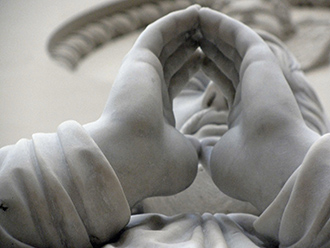 Why do we pray?
Why do we pray?Even those of us who pray regularly have sometimes wondered if we should not ask God for things in prayer because, since He is all-wise, doesn’t He know already what is best? And if He is all-good, won’t He do it whether we pray or not?
In response to those who claimed that bringing requests to God in prayer is a useless activity because God’s actions are out of our control, C.S. Lewis explains the value of all forms of prayer, including supplications. And he explores why we should pray even if our prayers are not answered in the way we see fit.
In every action, just as in every prayer, you are trying to bring about a certain result; and this result must be good or bad. Why, then, do we not argue as the opponents of prayer argue, and say that if the intended result is good, God will bring it to pass without your interference, and that if it is bad, He will prevent it happening whatever you do? Why wash your hands? If God intends them to be clean, they’ll come clean without your washing them. If He doesn’t, they’ll remain dirty (as Lady MacBeth found) however much soap you use. Why ask for the salt? Why put on your boots? Why do anything?
We know that we can act and that our actions produce results. Everyone who believes in God must therefore admit (quite apart from the question of prayer) that God has not chosen to write the whole history with His own hand. Most of the events that go on in the universe are indeed out of our control, but not all. It is like a play in which the scene and the general outline of the story is fixed by the author, but certain minor details are left for the actors to improvise. It may be a mystery why He should have allowed us to cause real events at all, but it is no odder that He should allow us to cause them by praying than by any other method.
....
Prayers are not always – in the crude, factual sense of the word – “granted.” This is not because prayer is a weaker kind of causality, but because it is a stronger kind. When it “works” at all it works unlimited by space and time. That is why God has retained a discretionary power of granting or refusing it; except on that condition prayer would destroy us. It is not unreasonable for a headmaster to say, “Such and such things you may do according to the fixed rules of this school. But such and such other things are too dangerous to be left to general rules. If you want to do them you must come and make a request and talk over the whole matter with me in my study. And then – we’ll see.”
Despite the fact that we do not always see our prayers answered the way we might have wanted, we should still ask for God’s special providence, because, in His wisdom, He will act in the way that is best for us.












